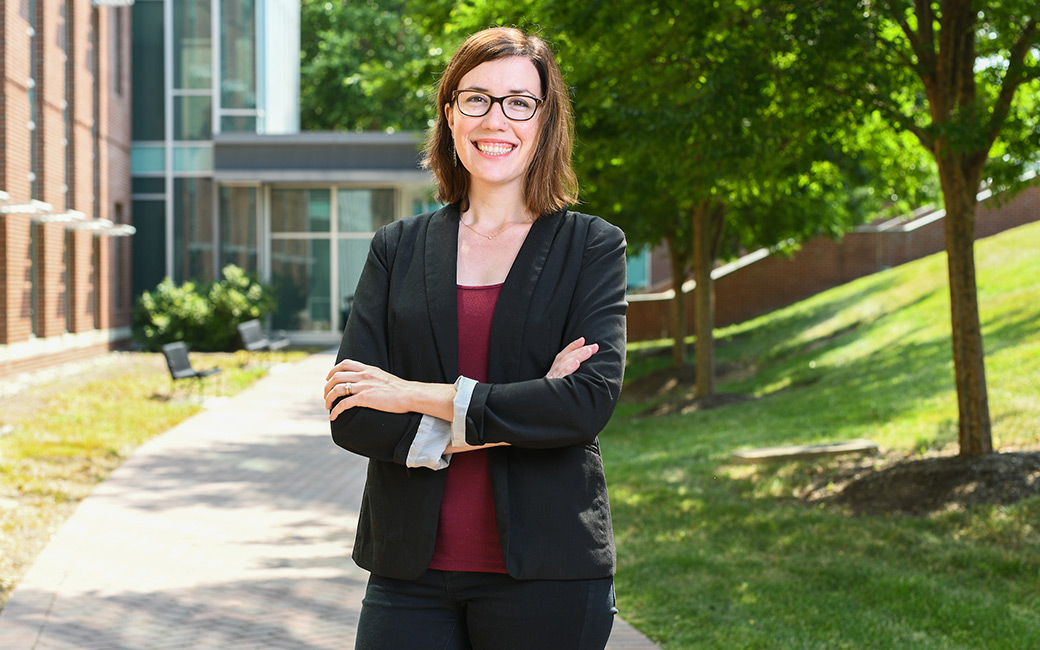Battling Back
Her research on cancer survivorship has led Amanda Ginter to advocate for greater support systems for patients and their families.

When she graduated in 2013 with a doctorate in family science from the University of Maryland, Amanda Ginter was interested in working for a university that emphasized quality education for students and supported faculty research. That search led her to TU.
“Family science is the study of families, their challenges, struggles, strengths, and how to support them. If we better support families, we better support society,” describes Ginter.
As an associate professor in the Department of Family Science, Ginter primarily teaches research methods courses, engaging students in her research. “Towson family studies students are inquisitive, and they are genuinely excited to support families,” says Ginter. “Their studies open up so many different career paths involving families and different ways to work with them.”
“ Towson family studies students are inquisitive, and they are genuinely excited to support families. ”
Many of Ginter’s studies have focused on cancer survivorship, including her dissertation on single women experiencing breast cancer. More recently, she has looked at women under 40 who are diagnosed with advanced stage breast cancer. “Those with metastatic breast cancer have different needs that must be recognized by the larger medical community. Stage four is not a monolithic prognosis; patients can live for months or years,” explains Ginter, who is now collaborating with a faculty member in kinesiology to study how young adults in the Baltimore area face cancer diagnoses.
Ginter is quick to point out the benefits of student involvement in research. “At the graduate level, students implement evidence-based practice and can use research to determine if an intervention is effective. Undergraduates will need to interpret research to learn what makes families tick and how we can improve life for them.” Two current studies spearheaded by graduate students at TU are assessing the impact of child life specialists.